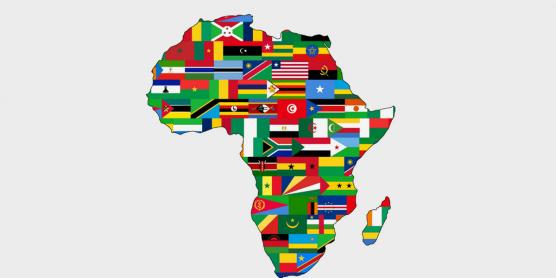Dear Sir/Madam,
In less than a month’s time, the 2022 United Nations Climate Change Conference (COP 27) will take place at the Sharm el-Sheikh Climate Change Conference in Egypt. During the two-week conference, government and non-party stakeholders will deliberate about delivering greenhouse gas emission reductions and helping ensure a transition to a net-zero global economy. This open letter addressed to the COP 27 African delegates offers suggestions on negotiating with your counterparts, especially those from the Global North. As representatives of over a billion Africans, I need not remind you that your people's future depends on what you agree with your colleagues. From history, we learn how western colonial powers used blank treaty forms to strip Africa of its resources - we should not allow history to repeat itself. Irrespective of all the talk you will hear about how this is a global initiative to protect the environment, rest assured that each regional bloc will enter the conference to protect its self-interest. So I urge you to be strategic in your negotiations.
Before applying your strategy, it is essential to be aware of the tactics likely to be used by the Global North. Mark Carney, the former Governor of the Bank of England and Bank of Canada, said the shift toward net-zero emissions would be the "Greatest commercial opportunity of our time." However, the question that should be at the back of your mind is: What is the regional distribution of these economic gains? Suppose previous summits and discussions on climate change are to serve as a guide. In that case, the conference will once again be dominated by white economists, white NGOs, white politicians, white media, white philanthropists, white billionaires, white investors, white royalty, white think tanks, white academics, white activists and white celebrities making the critical decisions that affect the rest of the world. You will see the likes of Al Gore, Greta Thunberg, Larry Fink and David Attenborough, the patron saint of conservationism, take centre stage while you would be relegated to the supporting cast role. The west's strategy will be to pontificate on the scale of climate change and the need for the world to transition to Net-Zero. They will not take responsibility for their complicity in causing the climate disaster and would suggest that all hands on deck are required to avert a climate catastrophe. Though they will acknowledge the astronomical cost of the transition to Net Zero as a manifestation of the white saviour industrial complex, they will offer to help you by giving you loans or aid, which will not compensate Africa for suspending her current economic and industrial model.
Before entering into any commitment, you must be intentional and strategic. I strongly advise that you work towards decolonising the climate change narrative by amplifying your black and brown voices. It would be best if you don't commit to a target without fully costing its impact on present and future generations of Africans. Please do not buy into every suggestion coming from the west, as it has a track record of changing the goalposts when things don't favour them. Africa must present a united front by embracing the spirit of pan-Africanism to negotiate from a position of strength. Individually, we might be small, but when we combine our 54 voices, the world will have no choice but to sit up and listen. We should have African Union representatives from the 54 member states to represent and negotiate on behalf of the continent.
Africa's starting point should be from the premise that the Global North started the crisis and should bear the responsibility for resolving the problem with zero cost to Africa and other countries in the Global South. The west has had over a two-hundred-year head start ahead of the rest of the world by reaching an advanced stage of development by exploiting the earth's resources. Between 1750 and 1850, the west contributed 100% of cumulative Co2 emissions. By 1950, it had contributed to 92.71% of cumulative Co2 emissions. Today, the USA has emitted over 400 billion tonnes since 1751, while Africa's cumulative Co2 emissions as of 1750 and 2020 were 0% and 2.88%, respectively. If you bring up the role the west played in the current crisis, they could attempt to shift attention to the scale of the current problem and the need for countries to move to Net -Zero targets. It would help if you asked them who bears the cost of this transition.
Rather than taking instructions from the Global North, Africa should let the west know that contrary to popular opinion spewed by the western media, the greatest conservationists are not the white NGOs and white environmentalists but people of the Global South. For centuries, we have protected our lands, so we don't need to hear the Global North pontificate about how we are misusing our land.
The current discussion regarding financing climate adaptation and mitigation in the Global South is the form of climate finance and aid from the Global North. The most prominent is the $100bn annual commitment made at COP 16 in Cancun in 2010 and at COP21 in Paris in 2015, where developed countries agreed to provide $100bn yearly up to 2025 to developing countries. As of the time of writing, this commitment is yet to be fulfilled. However, this pledge, of which $20bn has been earmarked for Africa, is grossly inadequate, and Africa and the Global South should reject it.
The west often implements policies with little consideration of their impact on low-income countries in the Global South. A typical example is a call by western governments and standard setters to end the financing of fossil fuels. If this policy is implemented, countries like Nigeria, which generates 40% of its GDP, and 95% of its foreign exchange earnings from the oil and gas sector, will be economically castrated. We should also be cautious of increasing our debt load to transition to Net-Zero. According to Oxfam, around $24 billion of the climate finance loans granted to developing countries were offered on strict terms requiring higher repayments from low-income countries.
I suggest that climate wealth distribution should be the anchor of your negotiating strategy at COP27. It would be best if you let the west know that Africa does not need their aid and loans but wants environmental and economic justice in the form of compensation for the harm the west has done to the environment for 250 years and for the opportunity cost of abandoning a growth model which the west enjoyed via its use of fossil fuel. Therefore, I propose a climate wealth distribution scheme that accounts for the 250-year head start western countries enjoyed while exploiting the environment. Here is how it will work: If Africa is expected to decarbonise in 30 years by forgoing fossil fuels, in that case, it will be at a competitive disadvantage relative to western countries. Therefore, an option to consider would be implementing a scheme that will compensate the Global South for pursuing a net-zero policy through a climate wealth transfer from the Global North to the Global South. You could calculate the wealth transfer by subtracting the per capita of each developing country from the average GDP per capita for the west (currently $44,107 per capita) and multiplying the differential by the total population.
(Avg per capita West - Avg per capita Developing) *Population Developing
In this way, Nigeria, a country reliant on fossil fuel with an average per capita of $1,969 relative to the west's average per capita of $44,107, would receive an $8 trillion transfer from the Global North as compensation for decarbonising. Other countries on the continent will receive the following based on the model:
Ethiopia $4.6 trillion
Egypt $4.02 trillion
Kenya $2.1 trillion
Ghana $1.2 trillion
Zimbabwe $606 billion
Sierra Leone $326.6 billion
As a collective, Africa would receive a $57.8 trillion wealth transfer from the Global North. In response to this suggestion, they may tell you that the proposal is unreasonable as the total global economic output is around $100 trillion. However, you could say to them the suggestion is not as ludicrous as telling Africa to engage in self-immolation in the quest for a Net Zero transition. It is also not unreasonable considering the gains the west made during the post-industrial revolution at the expense of the environment and the profits it stands to make from the move to a green economy. Moreover, if the Federal Reserve and Bank of England could implement the economic miracle of quantitative easing to increase its balance sheet by trillions of dollars in response to the subprime crisis and Covid, finding $57.8 trillion to compensate Africa should not be a big deal.
As explained earlier, the west has an uncanny ability to exploit and destroy the earth's environmental resources and then tell the rest of the world to bear the cost and pain. Africa must use the conference as an opportunity to address the issue of climate geoengineering, which is the deliberate intervention in the earth's natural systems to counteract climate change. Several countries are funding research into sun-dimming technology to reflect the sun's rays away from the planet. Others are investigating the possibility of spraying calcium carbonate into the atmosphere to cool the earth's surface. "Playing God" with the climate could lead to famine and extreme weather patterns, likely impacting countries in the Global South. In addition, Africa should call for an end to solar space mining. Western governments and billionaires are currently engaged in an arms race to exploit the solar system for valuable mineral resources. The USA and Luxembourg have instituted regulations allowing private companies to exploit space and profit from extracted resources. You could inform western governments that the solar system is not the exclusive preserve of wealthy nations and that attempts to colonise the solar system needs to stop.
According to the High Ambition Coalition for Nature and People, half of the planet must be kept in a natural state to address the biodiversity and climate crises. To make this a reality, there is a proposal to protect 30% of the planet's land and ocean by 2030 at the forthcoming United Nations Biodiversity Conference in Montreal in December 2022. At face value, the 30x 30 concept seems to be an intergovernmental initiative involving over one hundred countries working towards curbing climate change. However, since most of the biodiversity hotspots are situated in the Global South, the protected land scheme could lead to a large-scale land grab in the Global South. According to Land Matrix, Africa is the most targeted region for large-scale land acquisitions in the Global South. Survival International, the London-based charity that campaigns for indigenous rights, argues that the 30X 30 plan will be the "biggest land grab in history, destroying the lives and livelihoods of those least responsible for environmental destruction."
Carbon offset schemes give large western organisations a licence to pollute while offsetting their carbon emissions with reforestation and conservation projects mainly located in the Global South. This could lead to a race to the bottom to use the protected lands of the global South to fortify their green credentials. According to research by ActionAid, Shell's plan to reach net zero emissions by 2050 by offsetting 120 million tonnes of CO2 from its polluting activities would amount to the acquisition of 12 million hectares of land by 2030, leading to aggressive land grabs in the Global South. Eni, the Italian oil major, announced in 2019 that it planned a 20 million-acre forest project spread across South Africa, Zimbabwe, Mozambique and Ghana to offset its emission. African delegates could tell the Global North that rather than using our land for its carbon offsets scheme, it should convert its 4.3 million hectares of western lands to forests and allow the rest of the world to use western land and forests for carbon offsets.
Many thanks for taking the time to read my letter. I trust you will take on board the suggestions highlighted above. Hopefully, future generations will remember COP 27 as the climate conference where Africa straightened its back and said, "On Our Terms."
Selah.
Ahmed Olayinka Sule, CFA
















